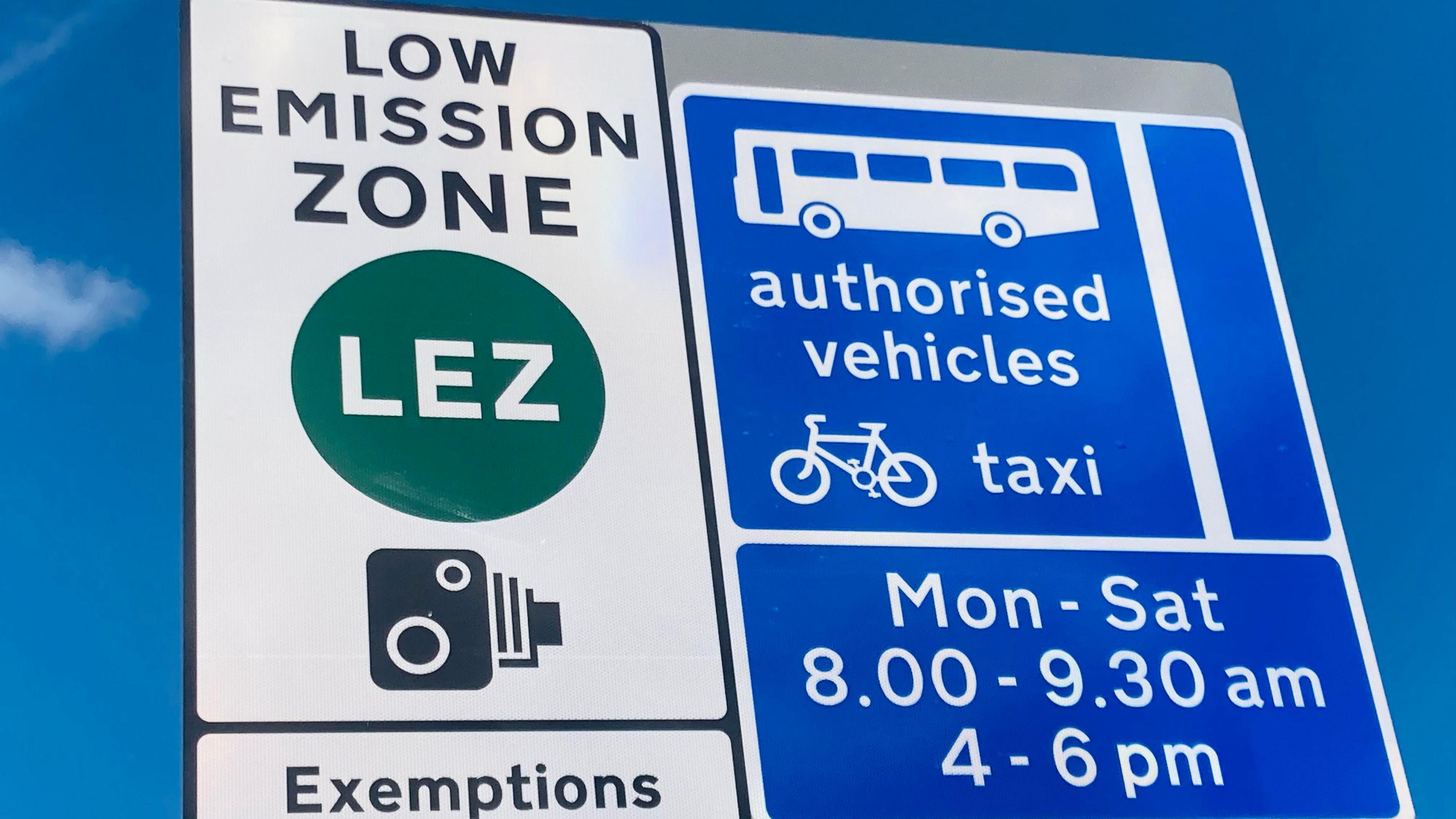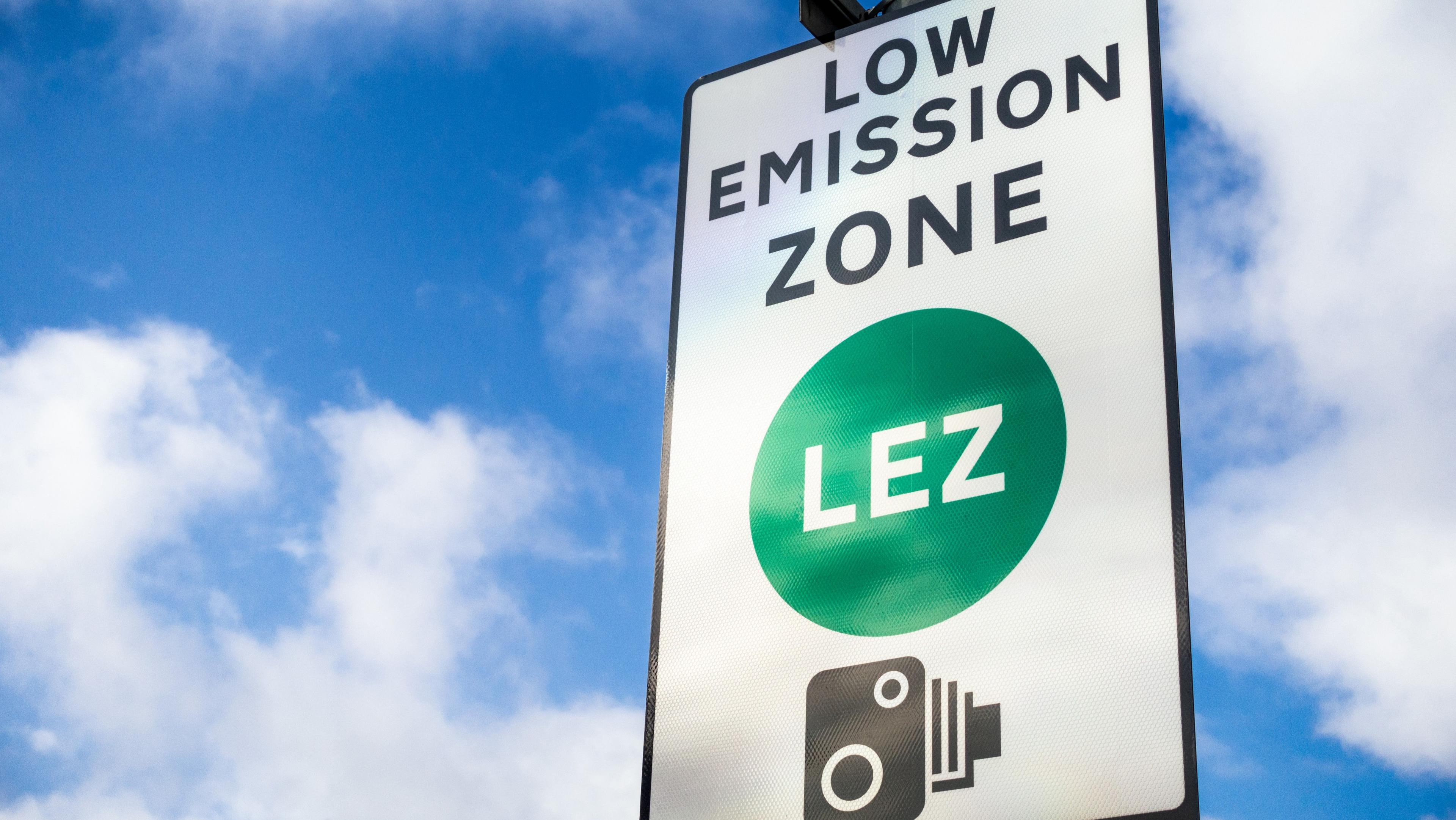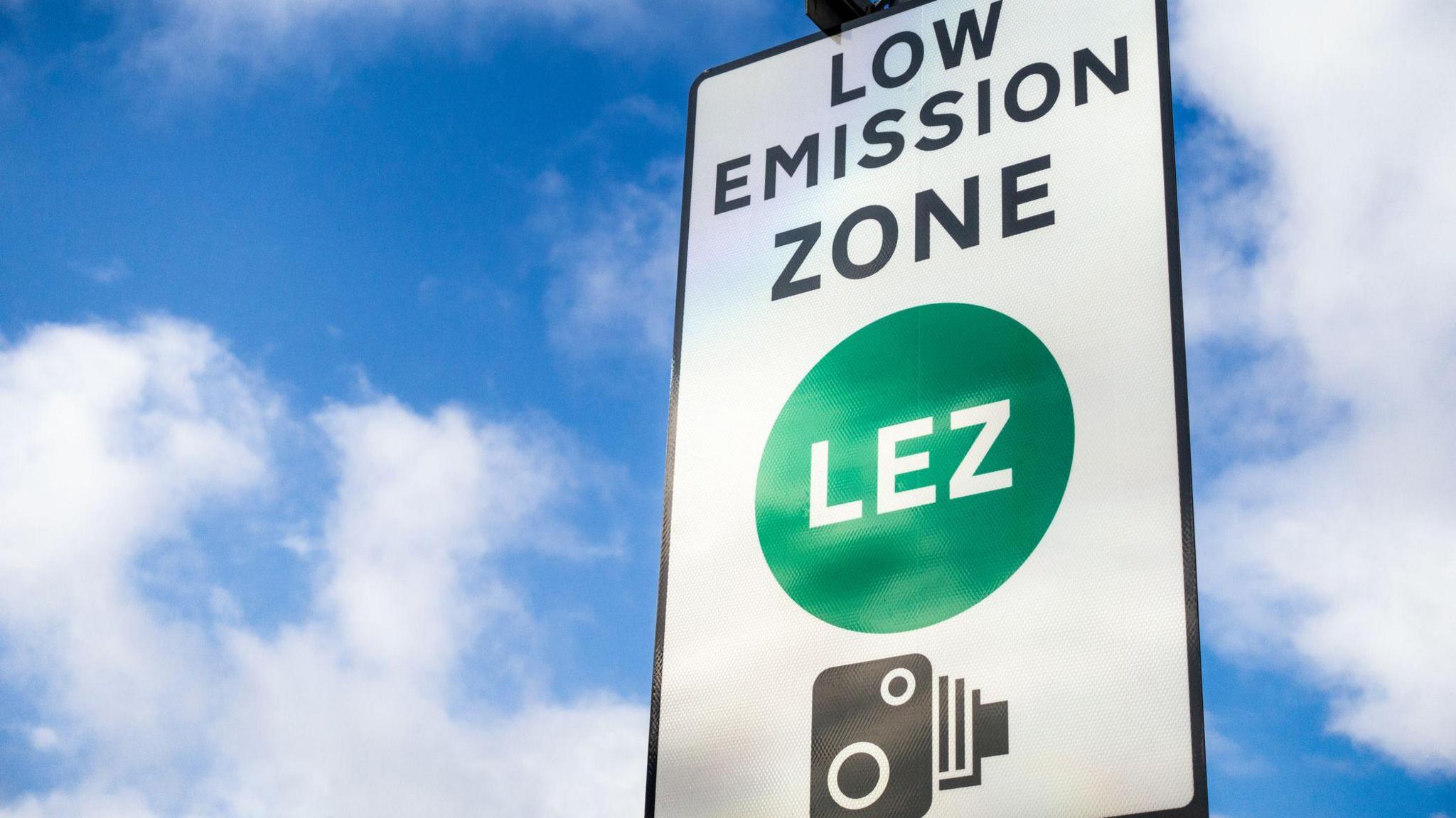Glasgow council wins appeal over LEZ fines by post

The Low Emission Zone was introduced in Glasgow on 1 June 2023
- Published
Glasgow City Council has successfully appealed against a ruling that allowed motorists who were sent a low emission zone (LEZ) penalty by untracked post to overturn their fine.
The Transport Appeal Tribunal for Scotland had previously said LEZ fines which had not been sent using recorded or registered post were not enforceable.
At the time of that ruling, in October 2023, 38 LEZ fines were overturned, with experts predicting that similar challenges could have cost the council more than £1.2m in penalty revenue.
The council appealed against the ruling in Scotland's highest civil court, which determined that the legislation did not support overturning the fines "on the basis of a technicality".
'Key decision'
Glasgow introduced the low emission zone in June 2023.
It meant vehicles which did not meet emission standards were no longer able to enter parts of the city centre, with owners facing an initial fine of £60.
This is reduced to £30 if it was paid within 30 days.
The initial tribunal ruling was made during an appeal against an LEZ fine by motorist Allan Hamilton.
It concluded that it was mandatory for any fixed penalty notice to be sent by tracked post.
This "key decision" did not mean the council had to refund fines that had already been paid but penalty notices sent by standard post had the potential to be overturned.
From the end of October 2023, all penalty notices were sent out by tracked delivery.

The case was decided by appeal judges Lady Dorrian, Lord Malcolm and Lord Pentland
Glasgow City Council appealed against the decision in the Inner House of the Court of Session - Scotland's highest civil court.
The council told appeal court judges that the parliamentarians who drafted the legislation could not have wanted people to escape being fined on "a purely technical point".
They also argued that it wasn't disputed that Mr Hamilton had received the penalty charge notice.
Lord Pentland, who delivered the opinion, agreed with the council's position.
He said that in cases where a penalty notices had been delivered in a successful and timely manner, there would be "no reason" for it to be unenforceable "essentially on the basis of a technicality".
The court heard that there are thought to be between 30 to 40 cases similar to Mr Hamilton's which are currently being considered by the first tier tribunal.
Related topics
- Published29 May 2024

- Published1 June 2023

- Published17 November 2023
